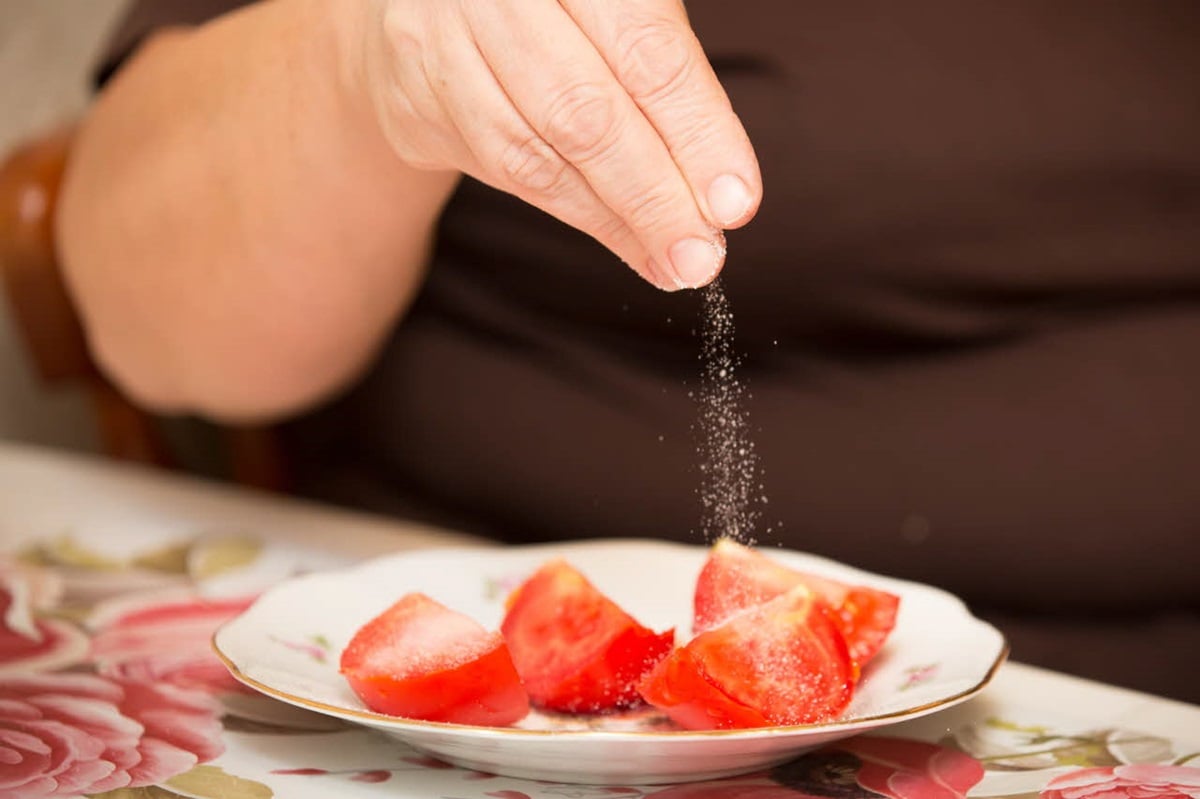anthropology pill
Banned
- Joined
- May 15, 2020
- Posts
- 634
- Reputation
- 462
Another thread to tank my reputation to post ratio even more
drinking more than your thirst is bad for you, especially if you are starving yourself.
same for excluding salt
physiology of fluid retention
Cellular fluid retention/oedema (in a non-diseased state) largely relies on maintaining proper blood volume, which is governed primarily by sodium, carbon dioxide and serum albumin. Blood volume and fluid retention are also affected by certain minerals such as potassium, calcium and magnesium, and hormones, such as oestrogen, progesterone, renin and aldosterone, but for simplicity’s sake we’ll tackle these factors another time.
Without enough sodium (from dietary salt), serum albumin is unable to keep water from leaving the blood and entering the tissues (causing tissue water retention) and vice versa.
Sodium in the diet helps to increase active thyroid hormone (and metabolic rate), increase the production of protective carbon dioxide (CO2), restrain stress hormones and inflammation. Carbon dioxide also plays a key role in water retention, as carbon dioxide regulates the movement of calcium and sodium into and out of the cell by buffering cellular pH in the form of carbonic acid.
If metabolism is low, or shifted towards burning fatty acids for fuel instead of carbohydrates (eg in low-carb diets) then there will be inadequate carbon dioxide produced and it’s more likely that the cell will hold onto water, calcium and estrogen. In a low metabolic state (hypothyroidism) carbon dioxide production is deficient and salt is excessively excreted, both contributing to the retention of water (and hypo-osmotic body fluids) and generally “puffiness” that many people complain of.
In a wordy, round-about kind of way, all this points towards to fact that decreasing sodium in the diet will actually have the opposite effect to what is trying to be achieved here – low salt diets will contribute to water retention.
A few more notes on salt:
The answer to your fluid retention woes? As always, person-specific, but some general guidelines aimed at supporting efficient oxidative metabolism and carbon dioxide production would include making sure you’re getting in:
Plus, eating regular balanced meals containing all the macronutrients (plenty of quality carbohydrates, adequate complete protein and some nutrient-dense saturated fat), helping to stabilize blood sugars and down-regulate stress and inflammation.
gl on 1,5k carbs and 5 litres of water a day while coping that you are not hypo, jfl
brb, miring my lean face on 4k cal and zero water intake (just milk, oj, foods for thirst)
drinking more than your thirst is bad for you, especially if you are starving yourself.
same for excluding salt
physiology of fluid retention
Cellular fluid retention/oedema (in a non-diseased state) largely relies on maintaining proper blood volume, which is governed primarily by sodium, carbon dioxide and serum albumin. Blood volume and fluid retention are also affected by certain minerals such as potassium, calcium and magnesium, and hormones, such as oestrogen, progesterone, renin and aldosterone, but for simplicity’s sake we’ll tackle these factors another time.
Without enough sodium (from dietary salt), serum albumin is unable to keep water from leaving the blood and entering the tissues (causing tissue water retention) and vice versa.
Sodium in the diet helps to increase active thyroid hormone (and metabolic rate), increase the production of protective carbon dioxide (CO2), restrain stress hormones and inflammation. Carbon dioxide also plays a key role in water retention, as carbon dioxide regulates the movement of calcium and sodium into and out of the cell by buffering cellular pH in the form of carbonic acid.
If metabolism is low, or shifted towards burning fatty acids for fuel instead of carbohydrates (eg in low-carb diets) then there will be inadequate carbon dioxide produced and it’s more likely that the cell will hold onto water, calcium and estrogen. In a low metabolic state (hypothyroidism) carbon dioxide production is deficient and salt is excessively excreted, both contributing to the retention of water (and hypo-osmotic body fluids) and generally “puffiness” that many people complain of.
In a wordy, round-about kind of way, all this points towards to fact that decreasing sodium in the diet will actually have the opposite effect to what is trying to be achieved here – low salt diets will contribute to water retention.
A few more notes on salt:
- Salt restriction can potentially lower blood pressure by a few points, but this doesn’t necessarily equate to good health. In fact, numerous studies show the deleterious effects of low salt diets on both cardiovascular disease and all-cause mortality, and the research suggests that an ideal sodium intake is about 4-6g per day (about double to triple what is widely recommended as the “upper limit for good health”). This equates to around 10-13g (~2 tsp) of actual salt.
- Low salt diets can also contribute to high blood pressure, as sodium deficiency is one of the factors that can increase renin secretion in the kidneys, and renin stimulates the blood to circulate faster, under greater pressure. Further reading: Salt myths and truths
The answer to your fluid retention woes? As always, person-specific, but some general guidelines aimed at supporting efficient oxidative metabolism and carbon dioxide production would include making sure you’re getting in:
- Adequate salt (and not too much water or other fluid)
- Adequate carbohydrates to promote efficient oxidative metabolism and production of protective CO2
- Adequate complete protein (serum albumin is a marker of dietary protein and good metabolism also relies on getting enough – but not too much – dietary protein)
Plus, eating regular balanced meals containing all the macronutrients (plenty of quality carbohydrates, adequate complete protein and some nutrient-dense saturated fat), helping to stabilize blood sugars and down-regulate stress and inflammation.
gl on 1,5k carbs and 5 litres of water a day while coping that you are not hypo, jfl
brb, miring my lean face on 4k cal and zero water intake (just milk, oj, foods for thirst)
Last edited:



